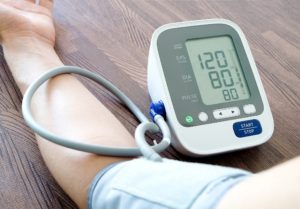 Both systolic blood pressure and diastolic blood pressure readings are critical for analyzing the risk of heart disease, according to a new study. In the past, research has indicated that high systolic blood pressure is more of a risk factor for heart disease, but this new study finds that both numbers have a strong association with stroke and heart attack.
Both systolic blood pressure and diastolic blood pressure readings are critical for analyzing the risk of heart disease, according to a new study. In the past, research has indicated that high systolic blood pressure is more of a risk factor for heart disease, but this new study finds that both numbers have a strong association with stroke and heart attack.
The systolic blood pressure reading shows how much pressure the blood places on the arteries when the heartbeats. The diastolic blood pressure shows the pressure while the heart is resting between beats. The American Heart Association (AHA) advise that blood pressure readings should be below 120/80 mm Hg. This means that people who have readings between 120-129 mm Hg and less than 80 mm Hg diastolic have elevated blood pressure. When blood pressure is consistently over 130 mm Hg systolic or more than 80 mm Hg diastolic, it is considered hypertension.
Advertisement
While previous research has told us that the systolic blood pressure reading was the most indicative of heart disease, this new study led by Kaiser Permanente stroke specialist Dr. Alexander C. Flint shows that both systolic and diastolic may predict the risk of heart disease.
A Clear Answer
The research included more than 36 million blood pressure readings from 1.3 million people. “This research brings a large amount of data to bear on a basic question, and it gives such a clear answer,” said Flint.
The largest of its kind, this study has confirmed that both blood pressure readings should be used to predict heart disease in patients. The effects of systolic and diastolic hypertension were analyzed and showed a variety of outcomes. Myocardial infarction, ischemic stroke, and hemorrhagic stroke were watched over eight years and found that both components independently predicted heart attack and stroke.
“This analysis, using a very large amount of longitudinal data, convincingly demonstrates that both are important, and it shows that in people who are otherwise generally healthy, lower blood pressure numbers are better,” said senior study author, Dr. Deepak L. Bhatt. Dr. Bhatt is the executive director of Interventional Cardiovascular Services at Brigham and Women’s Hospital and professor of medicine at Harvard Medical School, both in Boston, MA.
Advertisement
Worldwide, heart disease and stroke are the leading causes of death, and in the United States, more than 600,000 people die of heart disease every year. According to the Centers for Disease Control and Prevention (CDC), nearly one-quarter of deaths due to cardiovascular disease are preventable.
This study will help physicians to monitor patients with elevated blood pressure readings and help to better predict their risk of heart disease. Lowering blood pressure is possible by achieving some simple lifestyle changes. Regular exercise can increase heart and breathing rates, and over time, the heart will get stronger and pump with less effort. This puts less pressure on the arteries and lowers blood pressure.
If overweight, losing even 5–10 pounds can help to lower blood pressure. Also, being mindful about consuming a healthy diet can help to lower blood pressure numbers. Stay away from processed foods and sugars, and include more vegetables and fruits in your daily diet to help lower blood pressure.
